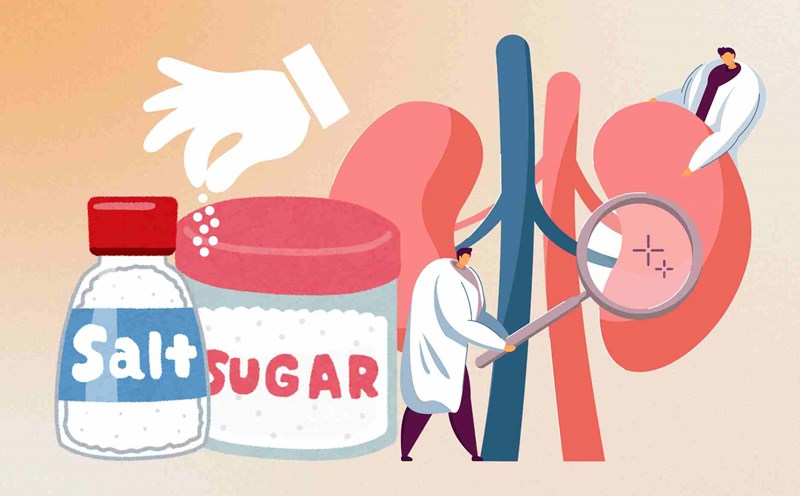No longer a disease of old age, kidney failure is quietly attacking young people, especially the group of workers aged 18 to 35.
The story of a young actress with end-stage kidney failure when she was not yet 30 years old surprised many people. According to information from the treating physician, she discovered the disease in May 2023 at stage 3, but after less than a year, the disease progressed severely. Currently, she has to have her kidneys filtered daily, has edema, high blood pressure and is at risk of death if she does not have a timely kidney transplant.
In fact, each year Vietnam records about 8,000 new cases of kidney failure. In particular, according to specialist II Dr. Nguyen Thi Diem Huong (Ho Chi Minh City University of Medicine and Pharmacy Hospital - facility 3), the rate of people aged 18 to 30 with kidney disease accounts for 20% - 30% of the total number of cases. This is an alarming number, showing that the disease that was once considered to be a disease of the elderly is now "younging" rapidly.
Doctor Vu Thi Minh Hoa - Head of the Department of Nephrology - Blood Clotting, Nguyen Tri Phuong Hospital said that in the past, kidney failure in young people was mainly caused by congenital or genetic diseases. However, in recent years, the number of cases of acute kidney failure due to unscientific living habits has increased rapidly. Many young patients arbitrarily use drugs of unknown origin, take weight loss drugs, kidney supplements or functional foods for a long time without examination. Along with that is an unhealthy diet, high in salt, fast food, sugary drinks and saturated fat - all of which put great pressure on the kidneys. Many young people stay up late, are less active, and are constantly stressed, causing the risk of underlying diseases such as high blood pressure, diabetes, and obesity to increase. These are also leading factors causing chronic kidney failure.
Some seemingly harmless habits such as urination and drinking less water also contribute to kidney damage, leading to urinary tract inflammation, kidney stones, even renal inflammation, acute kidney failure. Notably, underlying diseases such as chronic renal thrombitis, metabolic disorders or diabetes - which are increasingly discovered in people under the age of 35, are also becoming the leading causes of pushing patients to the final stage of kidney failure.
Chronic kidney failure progresses silently through 5 stages. In the initial stage, the disease has almost no symptoms, but from stage 3 onwards, the patient will start to feel tired, swollen, electrolyte disorder, high blood pressure, anemia and a significant decrease in quality of life. By the 4-5 stage, many people are forced to have regular blood filtration or kidney transplants to maintain their lives.
To prevent this, doctors recommend changing health behavior early: eating less salt, drinking enough water, limiting processed foods, maintaining at least 150 minutes of exercise per week and absolutely not arbitrarily using drugs of unknown origin.
In addition, early screening with urine, creatinine testing and blood pressure measurement should be included in regular check-ups, especially for people at high risk. The community also needs to strengthen health education communication through social networks, press channels, and celebrities to raise awareness of this disease.
By the time it is recognized that the kidneys are damaged, it may be too late. Therefore, early disease prevention, living scientifically and taking timely actions are the ways for young people to protect their own future.











